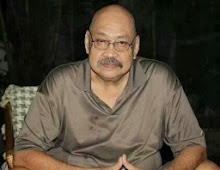ISLAMIC fundamentalism is on the rise, severely affecting civilized society, and it has extended to chess.
Saudi Arabia’s top cleric Grand Mufti Sheikh Abdullaziz declared chess the “work of Satan” and issued a religious decree, a fatwa, forbidding the “evil” game. Chess is prohibited. It is gambling. He insisted it is a waste of time and money and is a cause for animosity between players.
Saudi Arabia imposes many restrictions including the segregation between men and women in public and reinforces a ban on women’s driving.
Throughout history, chess has been banned on political, social, and religious grounds. In the 14th century, Charles V (1337-1380) banned chess in France. In 1061, Roman Catholic Cardinal Petrus Damiani (1007-1072) banned the clergy from playing chess.
In 1966, chess was banned in China as part of the Cultural Revolution. In 1994, chess was banned in Afghanistan by the Taliban – anyone caught playing chess was beaten or imprisoned.
“Saudi Arabia trying to ban chess is stupid, but we should be more concerned about their bans on human rights and democracy” says Garry Kasparov.
Many Islamic scholars also say there is no reason to believe that the game violates the tenets of Islam. The Saudi Chess Association has written a letter to Fide to assuage concerns.
“We thank our friends all over the world who showed concern regarding chess in Saudi Arabia. It is worth mentioning here that, in general, and for us as Muslims, all sports can fall into being religiously illegal once it involves gambling, directing players away from religious practice (prayers, etc.) and of course if they lead to creating hatred between players.
The Saudi Chess Association (SCA) is officially recognized by the Saudi Olympic Committee and is a full member of FIDE, the Asian Chess Federation as well as the Arab Chess Federation. Many local events and seminars are being organized and run as scheduled in all the cities of the Kingdom with an increasing number of participants from all ages. Also, the SCA is scheduled to take part, once again, in the next World Chess Olympiad as well as other regional and international FIDE events.
Moreover, the Saudi Chess Association is currently in the last stages of implementing the Chess in Schools program aiming to widen the grass-roots in exploring local chess talents. Many thanks and best regards, Yaser Al Otaibi,General Secretary”
McDonald’s. Our lady journalist and my favorite chess player Keith Claire Morala has sent in this report.
“Aldritz Pondoyo wrapped up the over-all champion trophy in the 1st McDonald’s Jones Cup Chess Championships 2016 last Jan. 23 at the McDonald’s Jones Branch, Cebu City.
After a series of wins, Pondoyo finally sealed a draw in the last round against Adrian Basilgo and claimed his solo champion spot for the 17-under Boys Category with 5.5 points.
Nathaniel Berdon and Marc Villarojo finished even at 5 points. Berdon bagged the second place while Villarojo settled for third after the tiebreak.
In the 13-under Boys Category, Rejel Perandos and Arje Villarin finished tied at 5 points with Perandos winning the tiebreak for first place. Jervy Villarin and Raniel Perandos finished at third and fourth places, respectively.
Glysen Derotas and Lyan Portes also finished with a tie at four points but a superior tiebreak had Derotas winning the 17-Under Ladies title.
Naureen Bagano also came up with a sparkling effort as the Top lady player in the 13-under category. The event, which had six rounds, attracted 54 players.
